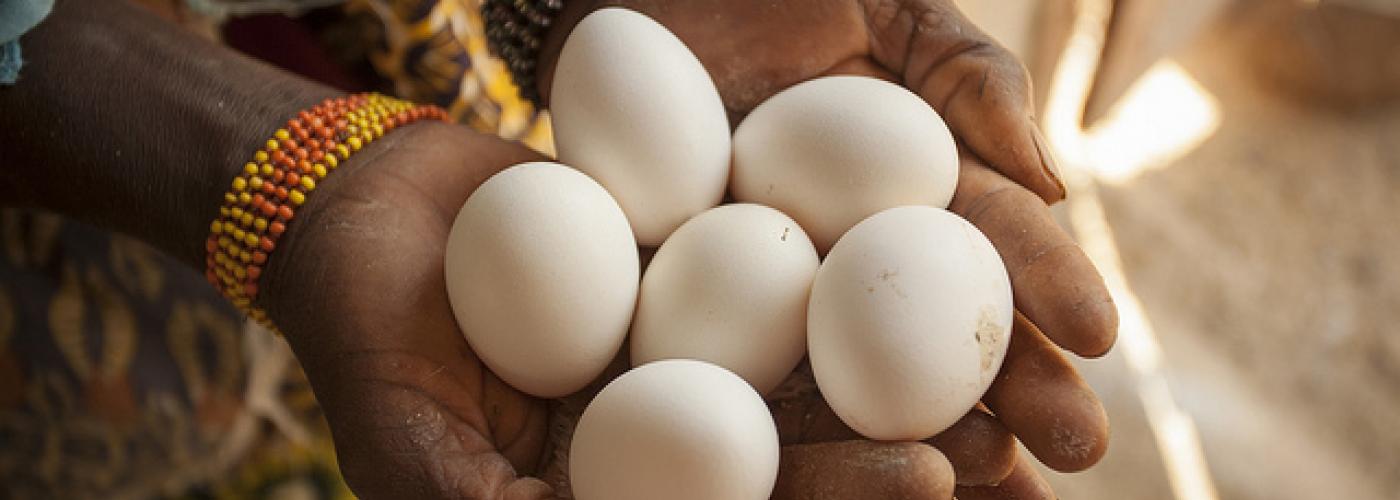Expanding Incomes for Small-Scale Poultry Producers in Burkina Faso
Image

Passingbamba Zoré was still in his twenties a couple years ago when he started a poultry raising business. A hardworking member of the Solomnore village in the commune of Pissila in the Center-North region of Burkina Faso, he soon understood how hard it was for small-scale producers like himself to get access to larger buyers.
Other factors plagued his business efforts – he could not afford an improved chicken coop, vaccinations, or improved feed to keep his chickens healthy. As a result, many chickens died, making his business less profitable. Furthermore, given his low income, Passingbamba and his new wife rarely had enough food, usually eating just once daily. At a low point, he considered moving abroad to CÔte d’Ivoire for a better livelihood.
Nevertheless, Passingbamba had potential. When he learned about a poultry breeding development opportunity through his producer group, Teel Taaba, he decided to apply. Contestant producer groups were judged on their knowledge of poultry production, their legal status, how the group functions, and whether they receive other outside financial support from funded programs or partners in the same field.
Passingbamba and his producer group placed near the top, out of 200 competitors, and were selected to receive technical assistance from the Victory Against Malnutrition Project (ViM). Funded by USAID’s Office of Food for Peace and implemented by ACDI/VOCA and Save the Children, the ViM project is reducing food insecurity by increasing and diversifying agricultural and livestock production, improving farmer incomes and household health and nutrition.

Photo: Passingbamba Zoré and wife, Balkissa, are successful poultry producers.
ViM trained Passingbamba and other members of the Teel Taaba group in poultry vaccination and introduced organic fertilizer production using the poultry waste. ViM also provided technical assistance and Passingbamba received doors and windows recycled from food distribution containers to use in constructing an improved henhouse. With his personal determination and support from the village, Passingbamba significantly improved his poultry business. Today he has over 200 chickens, up from just six birds when he started out.
“I now vaccinate all the chickens in the village, and I set aside a portion of each fee I receive for future activities and purchases,” Passingbamba Zoré said.
With money from increased sales, he bought a motorcycle and started raising goats and sheep for additional income. Beyond technical training, ViM also connected the Teel Taaba producer group to larger markets outside of the local area through sales fairs and further linkages to buyers.
He constructed an organic compost structure to produce manure and fertilize his crops. Now he manages the composting to further increase his production. Passingbamba has no plans to move abroad, thanks to his thriving business at home in Burkina Faso. He is planning to build a larger improved henhouse and continue to grow his production and breeding capacity.
Passingbamba’s future is bright. He and wife, Balkissa, have a toddler running around and a new baby on the way. Importantly, his family eats considerably more often.


